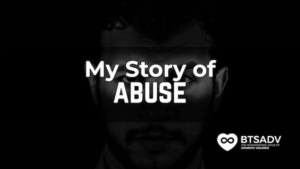By Iris Pendelton
For many survivors of domestic violence, pets are more than just animals—they are family. The companionship and unconditional love that pets provide can be a source of strength during difficult times.
However, leaving an abusive home becomes even more complicated when a beloved pet is involved. Abusers often use pets as a means of control. Threatening harm to them in order to keep their victims from leaving.
This fear can be so powerful that some victims choose to stay in the abusive relationship rather than risk their pet being harmed or killed. Unfortunately, many traditional domestic violence shelters do not accommodate animals. Leaving victims with an impossible choice: stay in an unsafe situation or leave their pet behind.
The Hidden Barrier: Pets and Domestic Violence
Studies have shown a strong correlation between domestic violence and pet ownership. Abusers frequently manipulate their victims by using pets as leverage, creating additional fear and emotional turmoil.
Many survivors report that threats against their pets were a primary factor in delaying their decision to leave. In some cases, abusers follow through on these threats. Using violence against pets as a way to punish or intimidate their victims.
For victims with small pets like cats or dogs, finding a shelter that allows animals can be incredibly difficult. For those with larger animals, such as horses, the challenges become even greater. Safe, temporary housing for pets is often limited, forcing many survivors to delay or forgo seeking help altogether.
Finding Solutions: Providing Safe Havens for Survivors and Their Pets
Recognizing this significant barrier, communities across the country are working to create solutions. One organization leading the charge is Red Rover, a nonprofit dedicated to helping domestic violence survivors find safety with their pets.
Red Rover offers Safe Escape Grants, which provide financial assistance for boarding pets while their owners seek shelter. Additionally, their Purple Leash Project, in partnership with Purina, is working to increase the number of pet-friendly domestic violence shelters nationwide.
These initiatives help ensure that no one has to choose between their safety and their pet’s well-being.
Local Efforts to Bridge the Gap
In my local community, the domestic violence coordinating council is actively working on solutions to support survivors with pets.
We recently did a training with Red Rover and some of the strategies we discussed to help with accommodating those in need of shelter who have pets include:
- Building partnerships with animal welfare organizations to create safe housing solutions for both survivors and their pets.
- Collaborating with local shelters to identify pet-friendly accommodations, ensuring that individuals fleeing domestic violence have safe options for their pets.
- Creating temporary pet housing solutions such as foster care, boarding programs, and emergency placement services.
- Advocating for expanded housing options that welcome both survivors and their pets, including pet-friendly rental properties and transitional housing.
This collaborative effort involves local advocates, law enforcement, government agencies, and animal welfare organizations, all working together to assess the need for pet-friendly housing and implement sustainable solutions.
The Power of Keeping Families Together
In the fight against domestic violence, we must recognize the crucial role that pets play in survivors’ lives. Ensuring that victims have access to pet-friendly resources not only empowers them to leave dangerous situations but also prevents the heartbreak of being separated from their beloved companions.
By addressing the fear of pet harm and providing real solutions, we can remove one of the biggest obstacles that keep victims trapped in abusive environments. By supporting initiatives like Red Rover and advocating for pet-friendly shelters, we can help break down one of the many barriers that keep victims trapped in abusive environments.
Together, we can create communities where no survivor has to choose between their safety and the safety of their pet. If you or someone you know is in a domestic violence situation and has concerns about pet safety, organizations like Red Rover and local advocacy groups may have resources to help.
Let’s continue to raise awareness and work toward a future where survivors and their pets can escape abuse—together.



